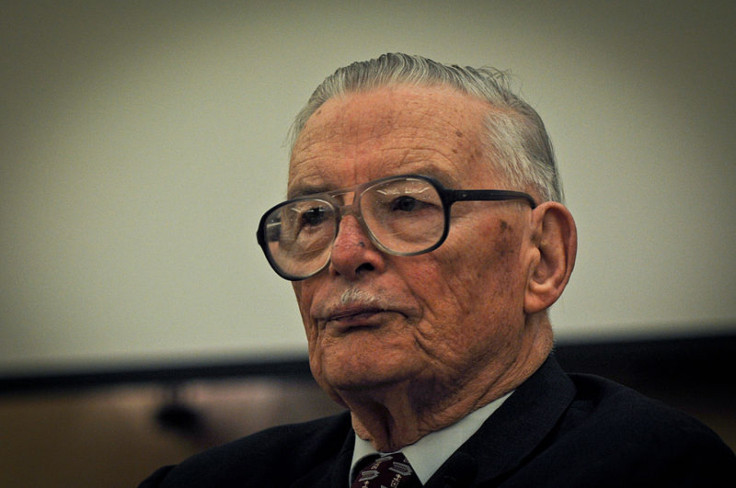Politics Without Romance
Opinion

The recent death of economist and Nobel Laureate James Buchanan, who died at the age of 93, has already inspired several appreciations of his life and work. (Like, here, here, here, and here, for example.)
Buchanan was a prolific scholar in many fields, but he will probably be best remembered for his role in the foundation of Public Choice economics, the study of the economics of the political process.
It is a sad commentary on the state of the economics profession that relatively few economists before Buchanan had thought systematically about applying economics to political behavior. Instead, most writers thought of economics only as a very narrow branch of human behavior concerned with commerce.
But as economists such as Ludwig von Mises have explained, economics is in fact a general science of human action. It applies to all purposeful behavior, not just behavior in the marketplace. The implication is that politicians and bureaucrats are no less economic actors than entrepreneurs or day-laborers; politics does not exist in a vacuum independent of economic laws, although practically all politicians since the beginning of time have wished this were the case.
Truth be told, political parties are almost always involved in promising a world free from economic reality. Governments promise to eliminate scarcity, poverty, sickness, crime and all social ills simply by their own mandate.
Contrast these promises with the conclusions of scholars such as Buchanan. Buchanan’s work on government has been described as “politics without romance,” and it is essentially a sustained demonstration that the emperor has no clothes. It shows politicians for exactly what they are: Human beings making economic decisions.
Political decisions are made in the context of certain institutions, certain “rules of the game” inherent in the system of government. Political actors respond to these rules and incentives just as everyone else does. And the inevitable result is that each politician's network of political motivations pushes decision-makers to promote their own narrow self-interest (and the interests of their chosen allies) at the expense of the rest of society.
Politics implies power, the possession of which enables political actors to redistribute benefits to those deemed worthy by said political actors. Power abhors a vacuum, so in response to the availability of influence, interest groups arise to capitalize on it and divide the spoils. The consequence is a political arms race to secure privileges before the competition can. In a way, the supply of political power creates its own demand.
The vital point is that political institutions make this kind of behavior not only possible, but profitable. As Buchanan and others have shown, problems of corruption, greed, waste and destruction in government are not matters of party politics, but of politics in general. They are certainly not a matter of simply finding the “right people for the job.” There are no such people. Politics is inextricably intertwined with the aforementioned problems, and often enough consists of little else.
And yet Public Choice insights came as something of a revelation to economists, who considered it revolutionary enough to merit Buchanan the Nobel Memorial Prize in Economics in 1986. How could such seemingly elementary facts have escaped the best and brightest of economists, or at the very least, failed to elicit their interest?
An easy answer would be to say that economists, the majority of whom are employed either directly or indirectly by government, have little incentive to point out its limitations, failures and inherent problems.
A more plausible answer is that economists have for some time been lost in abstract worlds of their own creation, where troublesome ideas like the effect of institutions and the fallibility of human beings are only messy distractions from the elegance of economic modeling. In such artificial worlds, it was easy to imagine government behavior as egalitarian and efficient (especially compared with the market), although it often produces the opposite of egalitarianism and efficiency.
Yet economists should not bear all the blame for romantic views of politics. Political institutions influence the voting public, which desperately wants to remain oblivious to harsh economic truths.
In fact, few impulses appear stronger than the desire to believe that one’s candidate and party can solve all the world’s problems, and that they are immune from economic limitations to their grand designs.
Yet despite, or perhaps because of, the innumerable failures of politics to improve the world, the allure of the romantic view of politics persists. But a serious analysis of politics itself reveals that the romantic view is simply a happy fantasy fostered by governments and voters alike to hide the fact that the political game is not a romance, but an abusive marriage.
Matt McCaffrey holds a master's degree in economics from Auburn University and is currently a PhD candidate in economics at the University of Angers. He is also the editor of Libertarian Papers.
© Copyright IBTimes 2024. All rights reserved.











